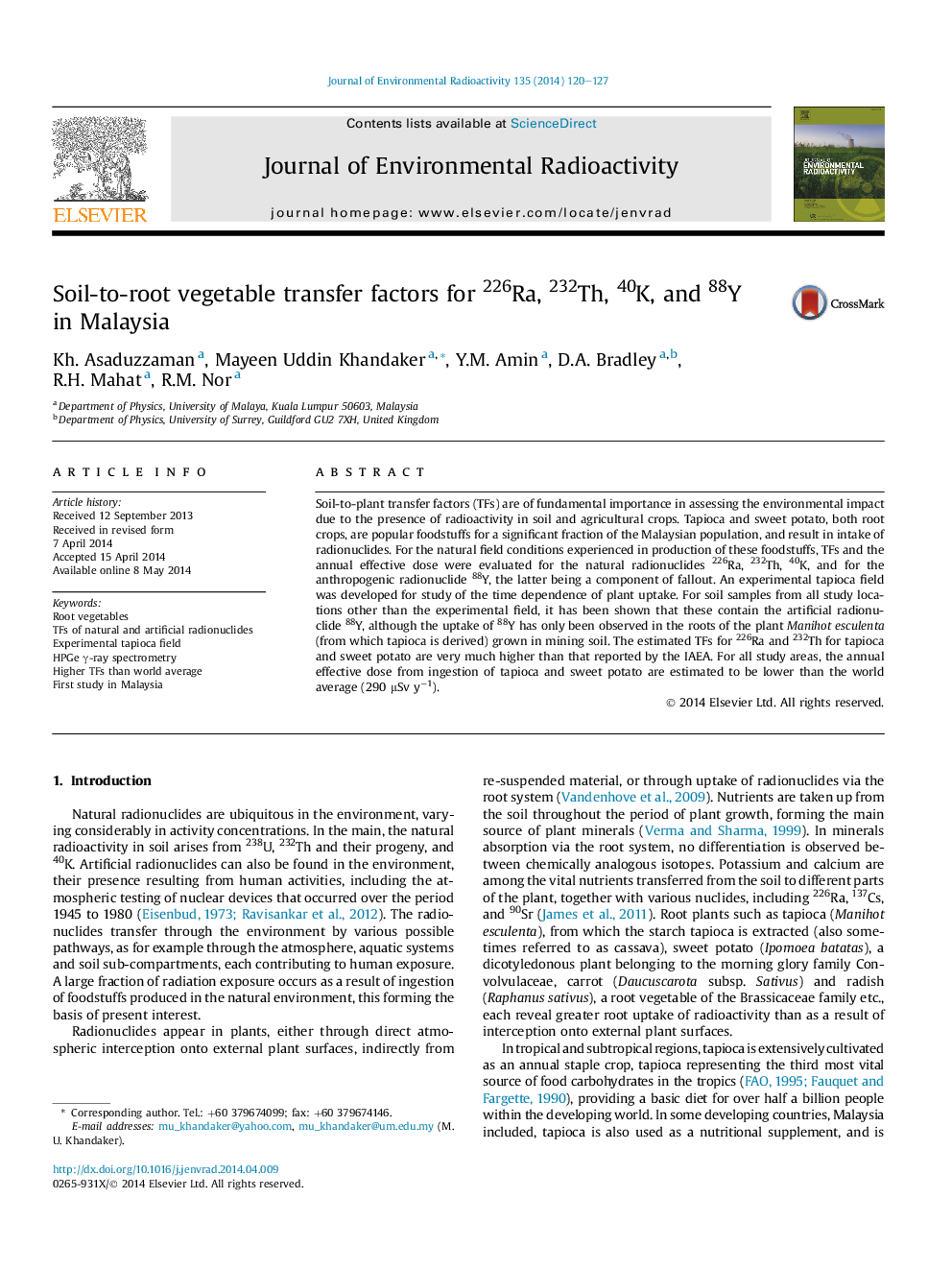| Article ID | Journal | Published Year | Pages | File Type |
|---|---|---|---|---|
| 1737955 | Journal of Environmental Radioactivity | 2014 | 8 Pages |
•Transfer factors of 226Ra, 232Th, 40K, and 88Y radionuclides were estimated for widely consumed root vegetables in Malaysia.•An experimental tapioca field was developed for study of the time dependence of plant uptakes.•The estimated TF values of 226Ra and 232Th for tapioca and sweet potato are higher than the IAEA reported values.•These site-specific TFs are of importance for model derivations for tropical regions.
Soil-to-plant transfer factors (TFs) are of fundamental importance in assessing the environmental impact due to the presence of radioactivity in soil and agricultural crops. Tapioca and sweet potato, both root crops, are popular foodstuffs for a significant fraction of the Malaysian population, and result in intake of radionuclides. For the natural field conditions experienced in production of these foodstuffs, TFs and the annual effective dose were evaluated for the natural radionuclides 226Ra, 232Th, 40K, and for the anthropogenic radionuclide 88Y, the latter being a component of fallout. An experimental tapioca field was developed for study of the time dependence of plant uptake. For soil samples from all study locations other than the experimental field, it has been shown that these contain the artificial radionuclide 88Y, although the uptake of 88Y has only been observed in the roots of the plant Manihot esculenta (from which tapioca is derived) grown in mining soil. The estimated TFs for 226Ra and 232Th for tapioca and sweet potato are very much higher than that reported by the IAEA. For all study areas, the annual effective dose from ingestion of tapioca and sweet potato are estimated to be lower than the world average (290 μSv y−1).
